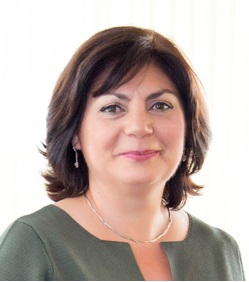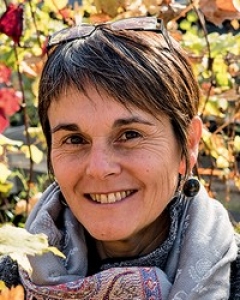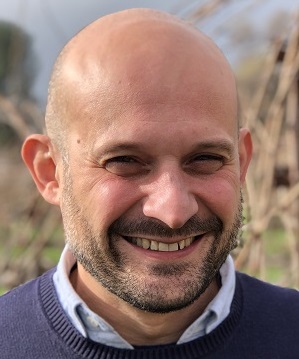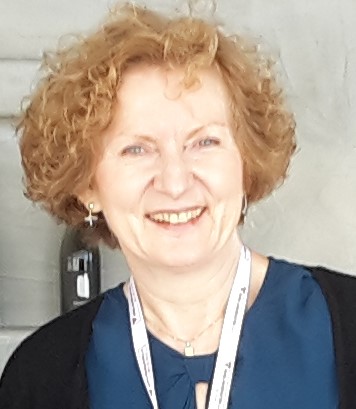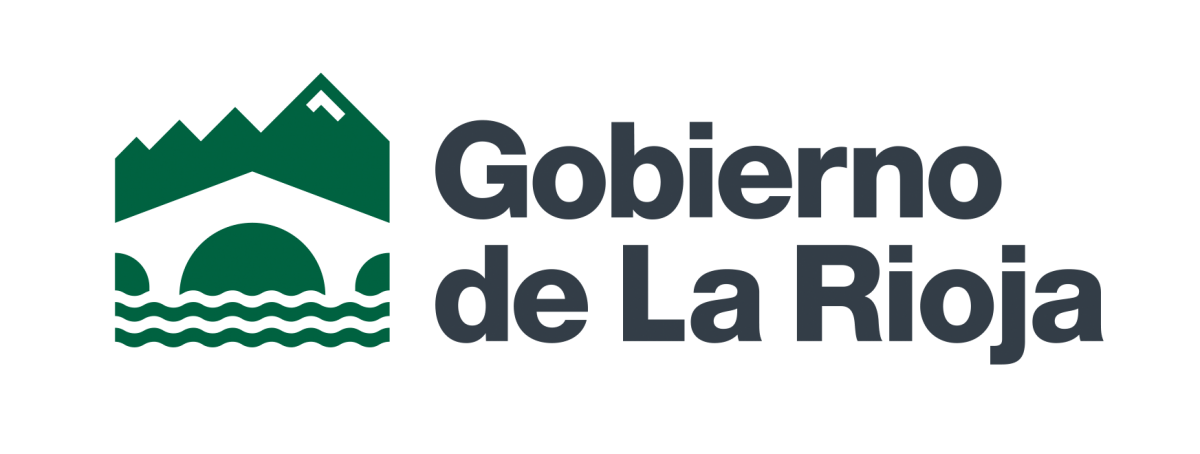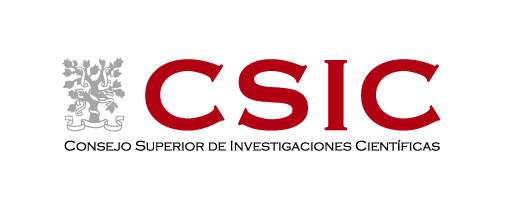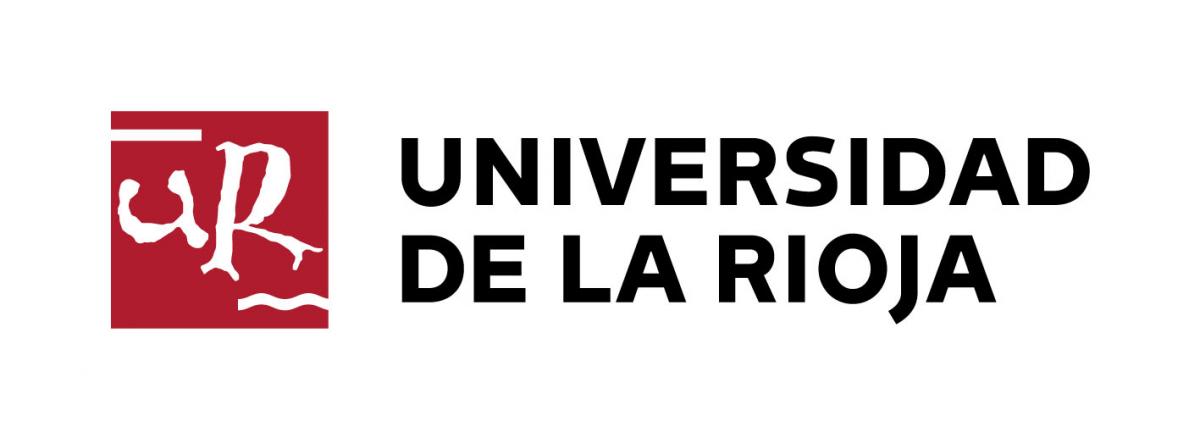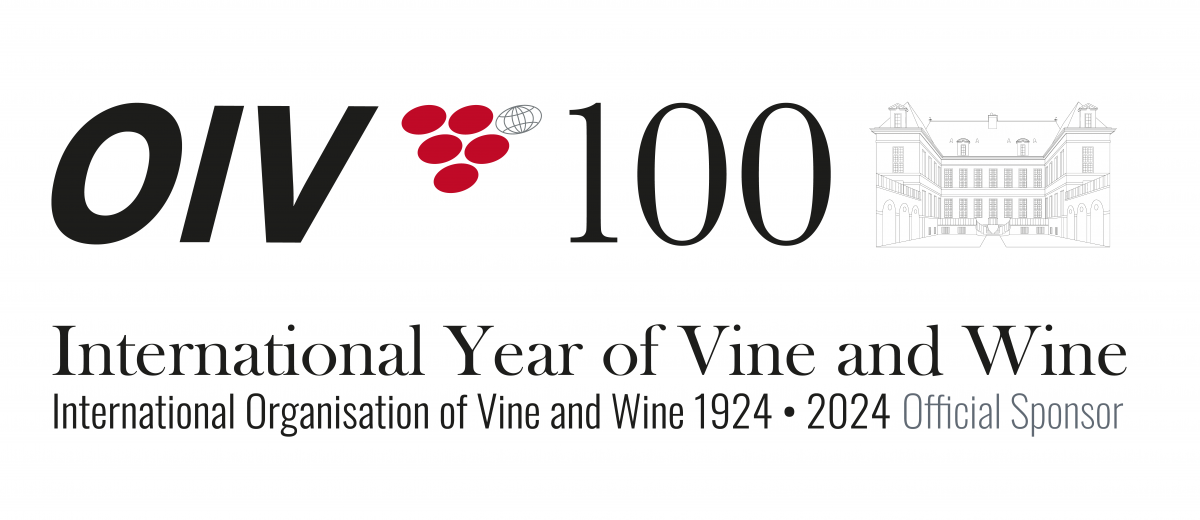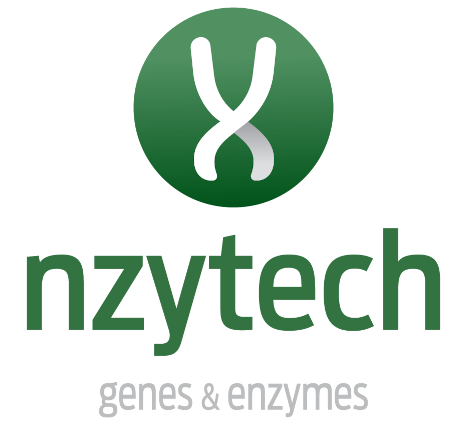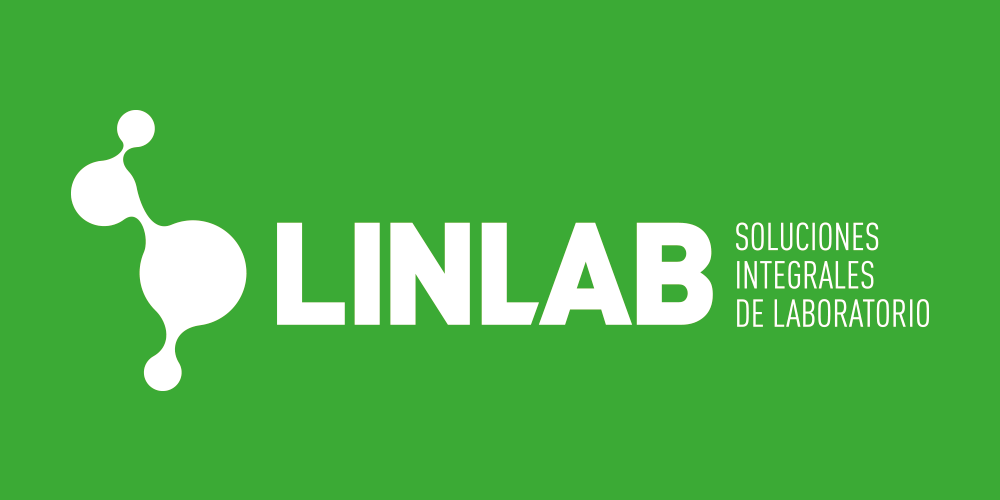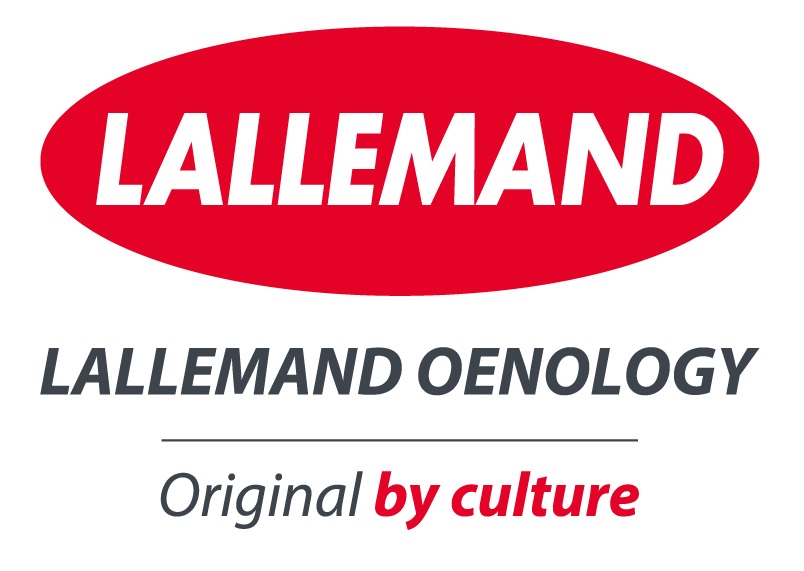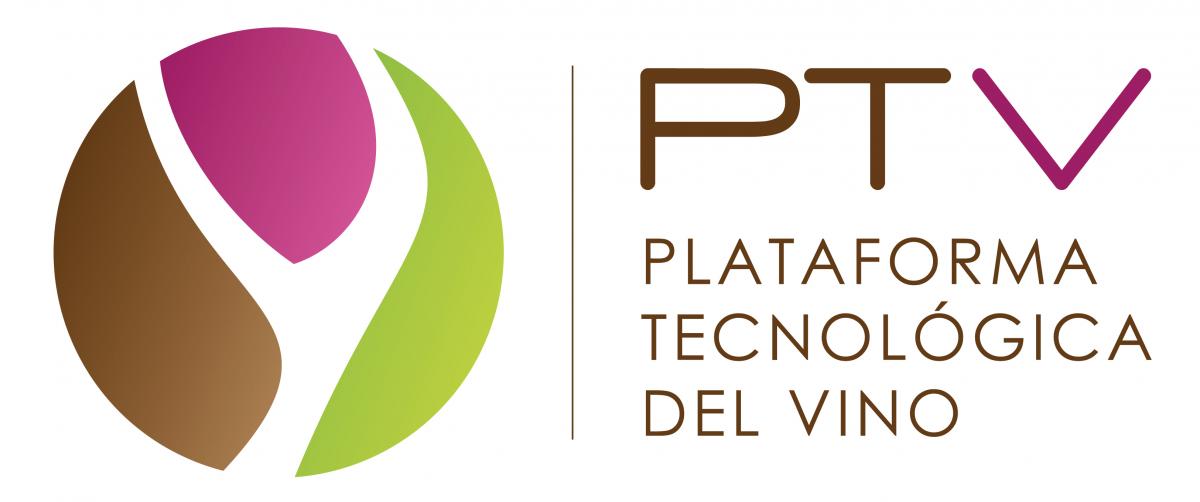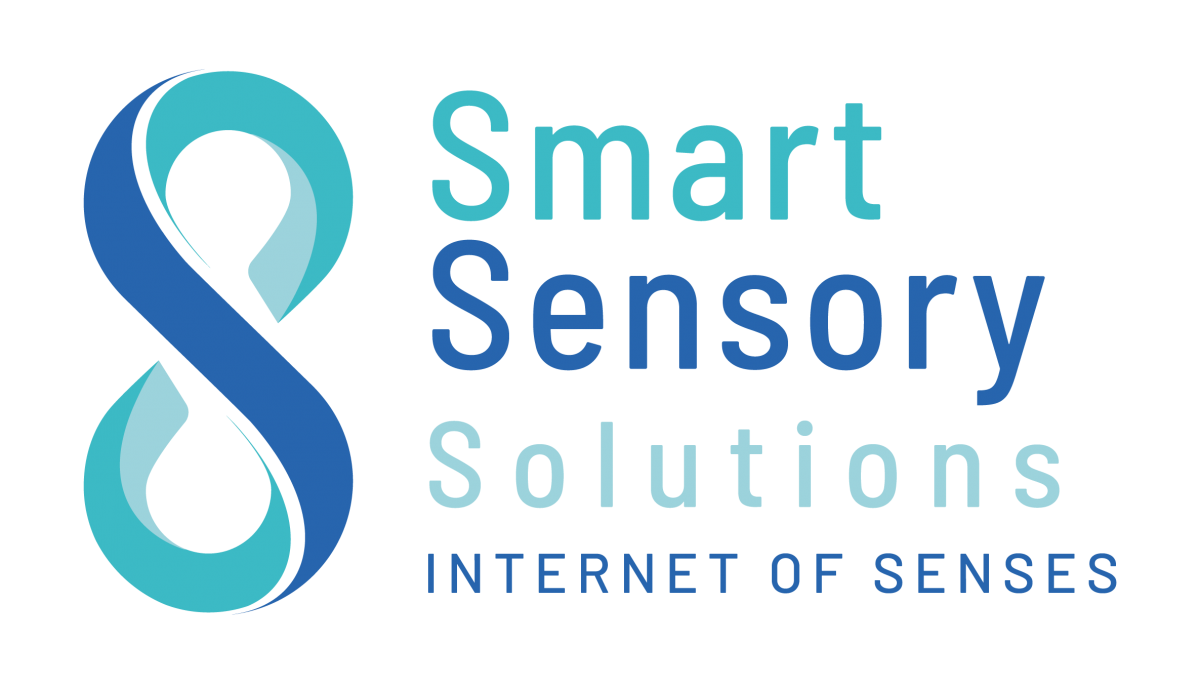II International Congress on Grapevine and Wine Sciences (2ICGWS)
With the success of the first conference, The Institute of Grapevine and Wine Sciences, (Instituto de Ciencias de la Vid y el Vino, ICVV) is proud to announce the second edition. The II International Conference of Grapevine and Wine Sciences will be held in Rioja Forum (Logroño, Spain) from the 8th to the 10th of November, 2023.
This congress will provide and constitute a culmination for the most relevant grapevine and wine research currently taking place. Moreover, the conference will promote a multidisciplinary interaction space for professionals who want to keep up to date on current advances in these fields. To be inclusive to all who wish to attend, the official language of the congress will be English. However, throughout the conference simultaneous translation will be available from English to Spanish.
This international forum aims to discuss and present the latest developments in viticulture, microbiology, genetic approaches, biotechnology, enology, wine chemistry and sensory analysis. In order to demonstrate how scientific research can positively influence the production of better, safer, healthier and higher quality grapes and wines, in a context framed by sustainability, climate change and circular economy, internationally recognized scientists will be invited to share their findings.
We encourage all participants to contribute with their most recent, novel, and even unpublished results in an oral communication or a poster.
Since the conference will be held in the heart of the Rioja DOCa, the location is surrounded by magnificent vineyards and some of the most prestigious wine producers of Spain.
We´re looking forward to meeting you in La Rioja.
E-mail: icvv_icgws@icvv.es
3rd April 2023 - Opening for abstract submission
18th June 2023 - NEW Deadline for abstract submission
6th July 2023 - Notification of acceptance/revision
31st July 2023 - Deadline early registration and authors registration
8-10 November 2023 - 2ICGWS
Prof. Dr. Amparo Querol (IATA-Valencia, Spain)
Prof.Dr. Vicente Ferreira (Universidad de Zaragoza, Spain)
Prof Dr. Nathalie Ollat (INRAe-Bordeaux, France)
Prof Dr. Dario Cantú (University of California Davis)
Ursula G. Fradera (Deutsche Weinakademie GmbH & Wine Information Council (WIC))
|
|
|
|
||
|
8.30-15.00 Registration |
9.00-9.45 Plenary speaker 2. Nathalie Ollat |
9.00-9.45 Plenary speaker 4. Amparo Querol |
||
|
9-13.00 Workshops 1/2 (Coffee break 11:00-11:30) |
9.45-11.00 Session 3: Grapevine |
9.45-11.00 Session 7: Oenological |
9.45-11.15 Session 11: |
9.45-11.15 Session 13: |
|
11.00-11.45 Coffee break/poster session |
11.15-11.45 Coffee break/poster session |
|||
|
11.45-13.00 Session 4: Grapevine |
11.45-13.00 Session 8: Chemistry to |
11.45-13.00 Session 12: Sustainable |
11.45-13:00 Session 14: Bioactive compounds in grape and wine |
|
|
13.00 Lunch workshop attendees |
13:00 Lunch |
13:00-13.45 Plenary speaker 5. |
||
|
14.45 Conference opening |
14.30-15.15 Plenary speaker 3. Vicente Ferreira |
13.45-14:00 Conference closure and awards |
||
|
|
15:15-15:25 IVES & PTV presentations |
14:00-15:00 Cocktail lunch |
||
|
15.00-15.45 Plenary speaker 1. Dario Cantù |
15.30-16.05 Session 5: Grapevine |
15.30-16.05 Session 9: Chemistry to |
|
|
|
15.45-16.30 Session 1: Grapevine genetics and improvement I |
16.00-16.30 Coffee break/poster session |
|
||
|
16.30-17.00 Coffee break/poster session
|
16.30-17.30 Session 6: Grapevine health II |
16.30-17.30 Session 10: From sensory profile to consumer perception II |
|
|
|
17.00-18.15 Session 2: Grapevine genetics and improvement II |
|
|
||
|
18.15-19.00 Poster session |
18:00 Winery visit and tasting in Haro. |
|
||
|
19.00-20.00 Welcome cocktail |
21.00-23:30 Congress cocktail dinner and |
|
||
In this edition, the II International Congress of Vine and Wine Sciences organizes two satellite workshops for Wednesday morning, November 8. Registration to attend one of the two workshops is to be done through the registration page.
Prize: 30€
Workshop 1: What do –omics provide to the grape and wine sciences? An update
In this workshop, renowned experts in these approaches will share their experience on the possibilities that genomics, transcriptomics, proteomics, and metabolomics can offer to the grape and wine sector. In addition, they will illustrate their experience with examples to show how these tools can be integrated to provide new scientific knowledge to contribute to the development of the grape and wine industry.
Workshop 2: Wines of the future: round table & tasting
The workshop consists of a round table that will deal with the future of viticulture and wine production in the context of climate change. Experts playing different roles within the wine industry will form the table and discuss about consumer preferences.
Different wines will be tasted in order to illustrate the different possible trends in the wine industry.
The abstract submission period begins on April 3, 2023 and ends on June 2, 2023.
Participants may submit proposals for ORAL COMMUNICATIONS and POSTER presentations.
The maximum number of papers per registered author is TWO.
Papers should be submitted and presented in English, the official language of the congress (simultaneous translation from English to Spanish will be available in the sessions).
All papers submitted to ICGWS2023 should follow the same pattern. The document to be submitted should contain the title, authors, affiliation and an abstract of max. 300 words.
The template to be sent in Word format through the electronic submission system is provided below.
The author in charge of submitting the paper will be responsible for uploading the abstract to the platform for review. The abstracts will be published Open Access in IVES Conference Series and a selection of articles will be published in OENO One vine and wine Open Access research journal.
He/she may subsequently modify his/her contribution at any time until June 18, 2023.
Notification of acceptances/revisions: July 6, 2023.
1: Grapevine health
2: Grapevine genetics and improvement
3: Sustainable vineyard management
4: Microorganisms for wine quality
5: Grapevine in a changing environment
6: Oenological processes and practices
7: Chemistry to face new wine industry scenarios
8: From sensory profile to consumer perception
9: Bioactive compounds in grape and wine
Oral presentations will be 15 minutes long (12' for presentation + 3' for questions)
Flash presentations will be 5 minutes long (no time for questions)
Delivery of presentations
The format must be 16:9. Please send the PowerPoint presentation (not PDF!!) at least one day before the session to: icvv_icgws@icvv.es
If the file is too large, you can use Wetransfer.com (free resource) to send your file.
We will accept last-minute deliveries at Secretariat desk in the Conference venue. Make sure to bring along your presentation on a USB stick. Please, avoid last-minute updates, only two versions will be accepted.
POSTERS
Posters size must be DIN A0 (118.9 x 84.1 cm; 46.81x33.11 inch) portrait orientation
Posters will be displayed on the Conference Venue from Wednesday 8th to Friday 10th.
Hang up posters: 8th Nov from 13:00
Take down posters: 10th Nov until 14:30
Maximum dimensions of Posters: 120 cm height, 85 cm width (DIN A0) portrait orientation.
The organising committee will select award recipients based on the quality of science of the abstract and the relevance of the abstract to the conference and the vine and wine research.
To be eligible for an award, you must be:
A graduate student (Master or PhD) currently enrolled in an academic institution at the start of the meeting or an early career researcher with a Ph.D obtained not before 31 October 2020.
Two recipients, one by category (graduate student or ECR), will be awarded.
This is a competitive application process based on the panel’s assessment of the contribution of the abstract to the conference and to the vine and wine research.
The award is a financial contribution for the award recipients.
|
|
|
|
|
|
|
|
|
|
|
|
|
|
|
|
|
|
|
|
|
|
|
|
A* Technical visit and gala dinner included
Note: the student fee applies to students who are studying a degree, official master's degree, or university doctoral program
In order to benefit from the corresponding fee, it is essential to attach a copy of the course registration that accredits your student status through the registry.
Pre-registration, without any economic cost, is mandatory to access your personal area. You will be able to perform the following operations:
• Manage the registration
• Book accommodation
• Send abstracts
• Download invoices
• Contact the Technical Secretariat
• Receive notifications
• Download certificates
Cancellation Policy Registration:
All cancellations must be electronically mailed to the Technical Secretary icvv_icgws@icvv.es
The cancellations received before September, 9th 2023 will have a penalty of 25% for administration fees, after this date the penalty will be 100% of the expenses.
|
|
|
|
|
Hotel AC La Rioja 4*
|
145 €
|
160 €
|
|
Hotel Los Bracos by Silken 4*
|
80 €
|
91 €
|
|
Hotel FG Logroño 3*
|
112 €
|
120 €
|
|
Hotel Condes de Haro 3*
|
88 €
|
99 €
|
|
Hotel Murrieta 3*
|
75 €
|
80 €
|
|
Sercotel Calle Mayor 4*
|
12% discount with the code 2ICGWS. According to the Standard fare on the hotel's website.
|
|
|
Sercotel Portales 3*
|
12% discount with the code 2ICGWS. According to the Standard fare on the hotel's website.
|
|
You will be able to book the available accommodation in your personal area.
Riojaforum
Calle San Millán, 23 - 25, 26004 Logroño, La Rioja
The Palacio de Congresos y Auditorio de La Rioja, better known as Riojaforum, is located in the Parque de la Ribera del Ebro, in an easily accessible area, five minutes walking distance from the center of Logroño. This proximity and accessibility can be extrapolated to the excellent communications available in Logroño.

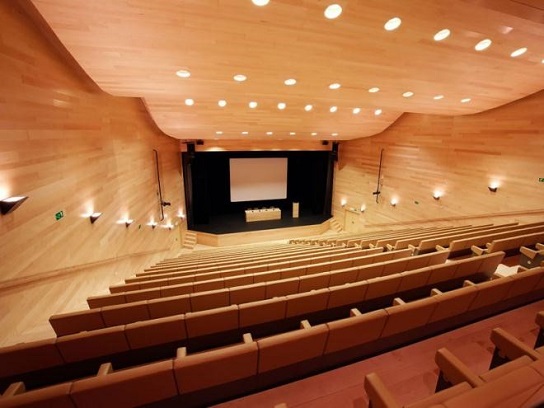
LOGROÑO
Logroño is the capital of the Autonomous Community of La Rioja. It is bathed by the Ebro River, which it embraces in its growth and development.
Among the best known virtues of the city, it is worth mentioning the culture of wine, gastronomy, the Camino de Santiago, the Old Town or the character of First Commercial City of Spain.
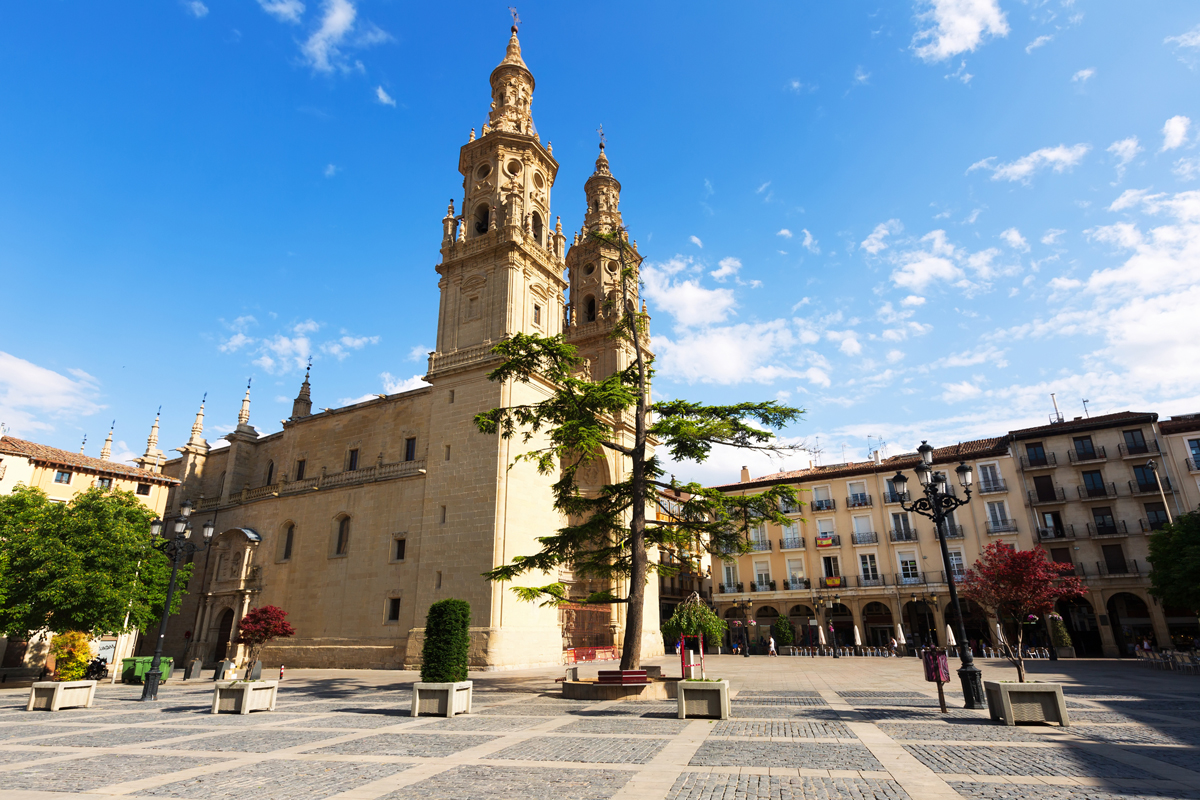
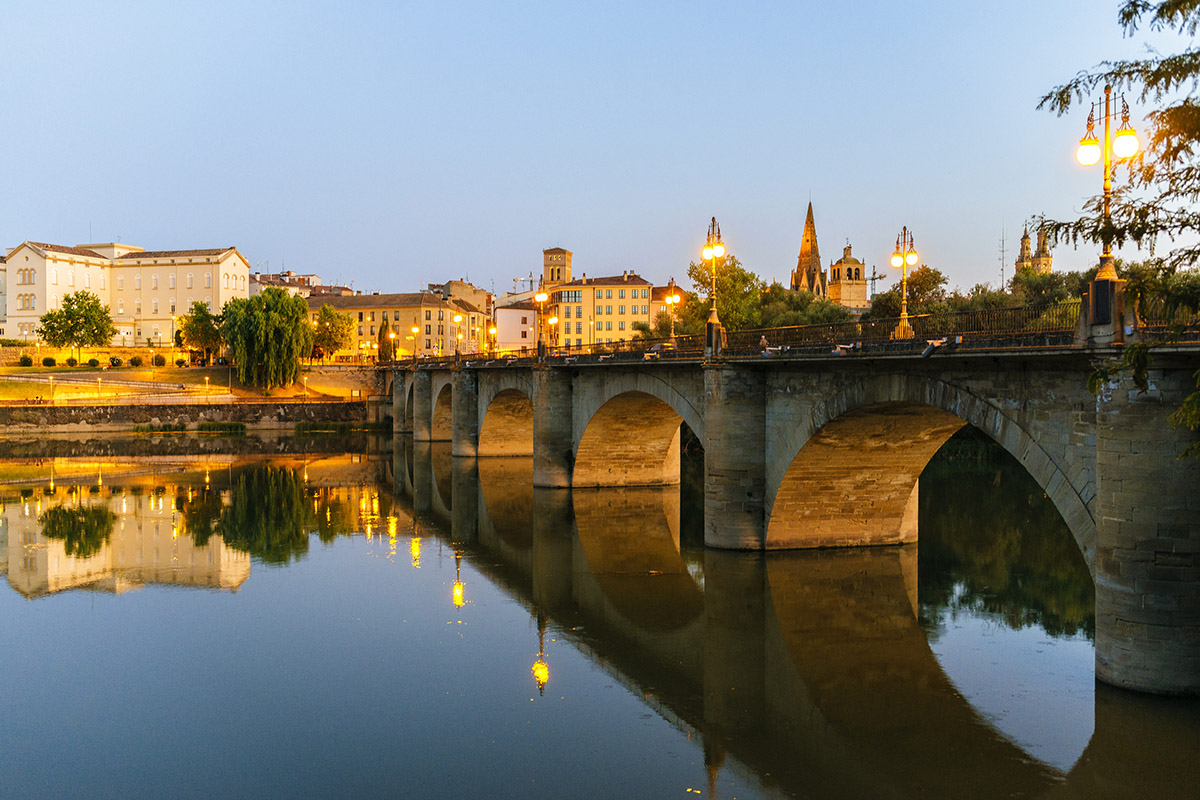
The size of the city invites visitors to stroll around and enjoy its significant enclaves. The Paseo de El Espolón, the co-cathedral of Santa María de La Redonda; the convent of La Merced, current seat of the regional Parliament; the characteristic Portales street, the church of Santiago El Real, or the church of Santa María de Palacio, are some examples of interest that cannot be missed.
How to get to Logroño?
Find how to get to Logroño from the most important and closest Spanish airports.

MADRID
Options to get to Logroño from Madrid:
Bus: ALSA and Jiménez Movilidad bus companies offer a service with direct departures from Madrid-Barajas Airport Terminal T4 to Logroño.
• ALSA. Schedules and prices at: www.alsa.es
• JIMENEZ MOVILIDAD. Schedules and prices at www.jimenezmovilidad.es
In addition, they also offer services from the Avenida América bus station. To get from Madrid-Barajas airport to Avenida América bus station there are two options:
• Bus line 200. More information
• Metro line 8 + line 4. More information
Train: Trains to Logroño depart from Madrid-Atocha station. The company in charge of this route is RENFE. Schedules and prices at: www.renfe.es
To get from Barajas Airport to Atocha Station there are several options:
• Bus 203 Exprés Aeropuerto. More information
• Metro line 8 + line 1. More information
Plane: There is one flight per day from Madrid Terminal 4 to Logroño airport. Schedules and prices at IBERIA airline: www.iberia.com
BILBAO
To get to Logroño from Bilbao airport, there are no direct means of transportation. Buses departure from the city centre.
Bus: go to Termibus bus station.
To get there, take the bus (line A3247) from the airport to Termibus bus station. Check schedules and prices here
The bus company in charge of the Bilbao-Logroño route is CUADRA BUS. Schedules and prices available at: https://cuadrabuslineas.com/en/
BARCELONA
To get to Logroño from Barcelona-El Prat airport, there are no direct means of transportation. Buses departure from the city centre.
Bus: To travel to Logroño by bus you must go to Barcelona Nord Station.
So that, you first take the Aerobús A1 or Aerobús A2 bus line to Plaza Cataluña. Then, take the metro line L1 towards Fondo. Barcelona public transport information
The bus company in charge of the Barcelona-Logroño route is ALSA. Schedules and prices at: www.alsa.es
Train: To travel to Logroño by train you must go to Barcelona-Sants Station.
To do so, you should take the train line R2 Nord. Check schedules and prices here
Then you need to take the train to Logroño. The train company is RENFE. Check timetables and prices at www.renfe.es
IN LOGROÑO
Once at the train or bus station, or at the airport in Logroño you can take a taxi to get to your accommodation. Taxis are usually parked next to each station or airport. If there is no one available, call the following telephone number to order one: +34 941 50 50 50.
From the bus or train station, you can also take a bus to go to your accommodation. Schedules and routes of the local bus: http://transporteurbano.logro-o.org/
This region, located in the western vertex of the Ebro valley, presents a privileged variety of landscapes, flora and fauna, due to the different geographical characteristics of its natural regions, giving life to the rivers that cross it to fertile plains.
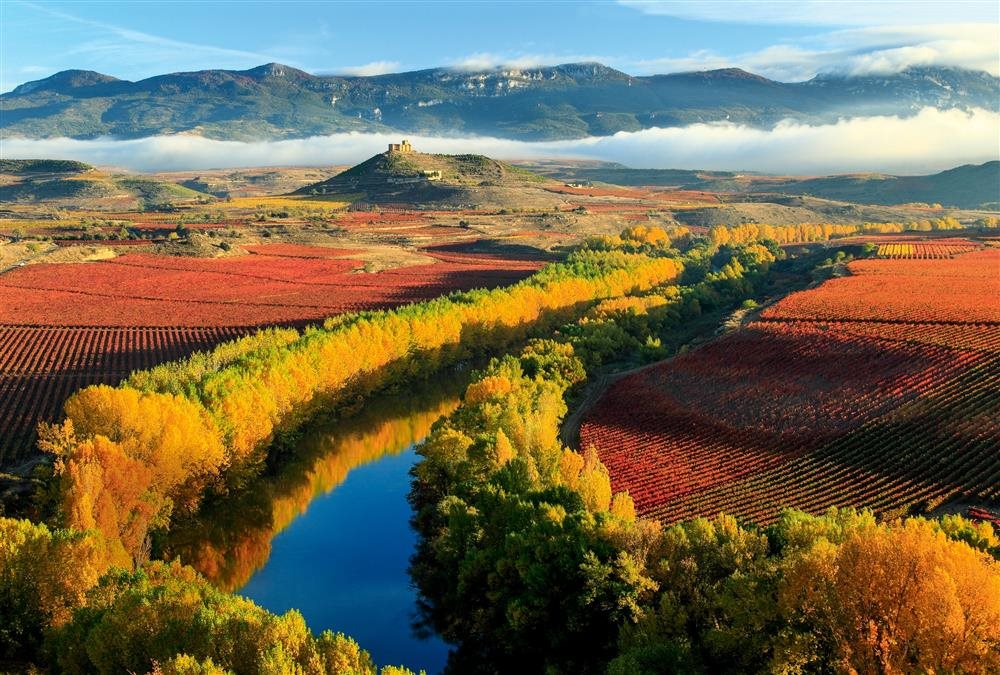
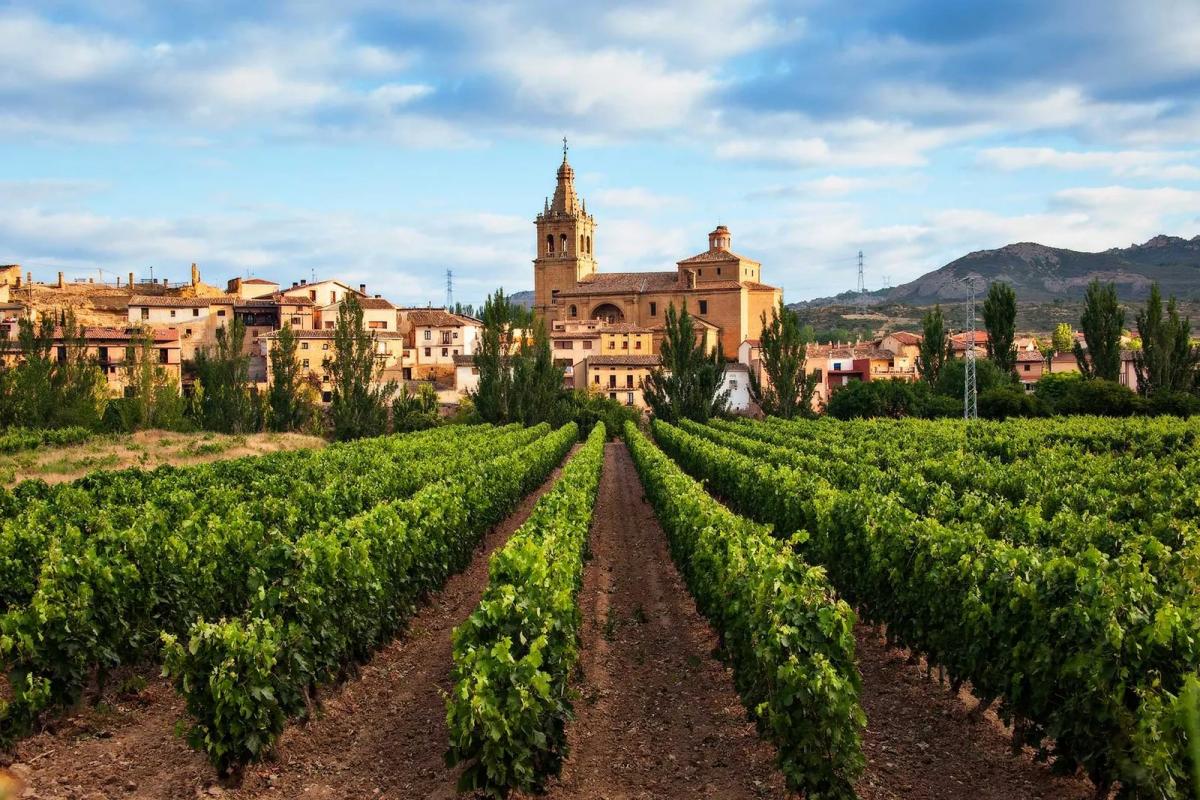
Being the smallest region of Spain, it has taken part in all the historical moments of this one. Occupied by the Romans and Muslims, in the Middle Ages it was the center of disputes between Navarre, Castile and Aragon. In this same period, the Camino de Santiago was a determining phenomenon for its cultural development, becoming a center of influence of the first order, especially through its monasteries, true foci of knowledge and where the first written text in Castilian was forged. Thus, the road is marked by monumental towns of great beauty such as Calahorra, Arnedo, San Millán de la Cogolla, Santo Domingo de la Calzada, and Logroño, already founded by the Romans and nowadays
Technical Secretary
Alo Congress – VB Group
Numancia 73, 08029 Barcelona | Spain
Espronceda 40, 28003 Madrid | Spain
T +34 933 633 954
icvv_icgws@icvv.es

